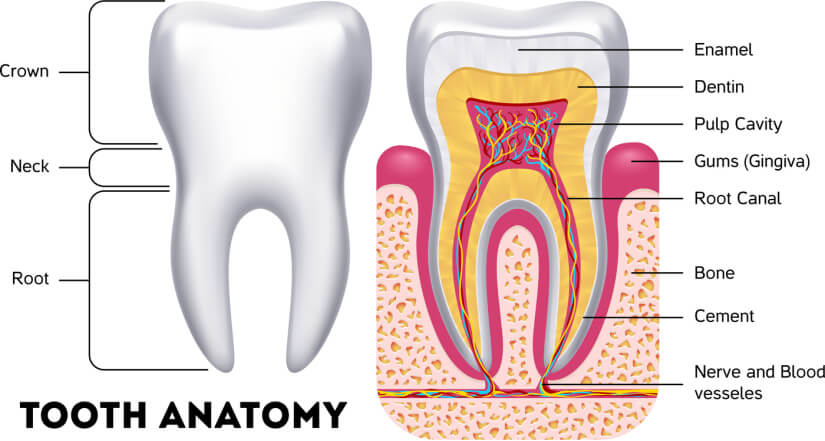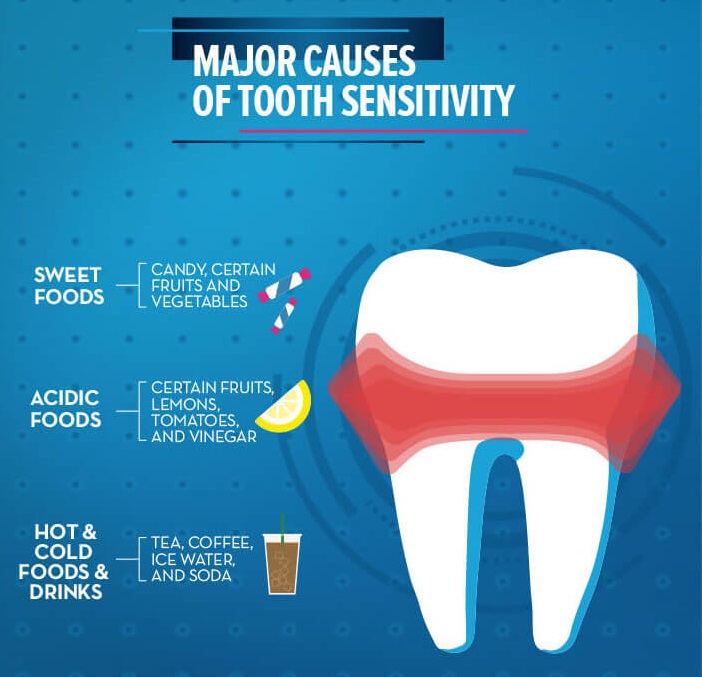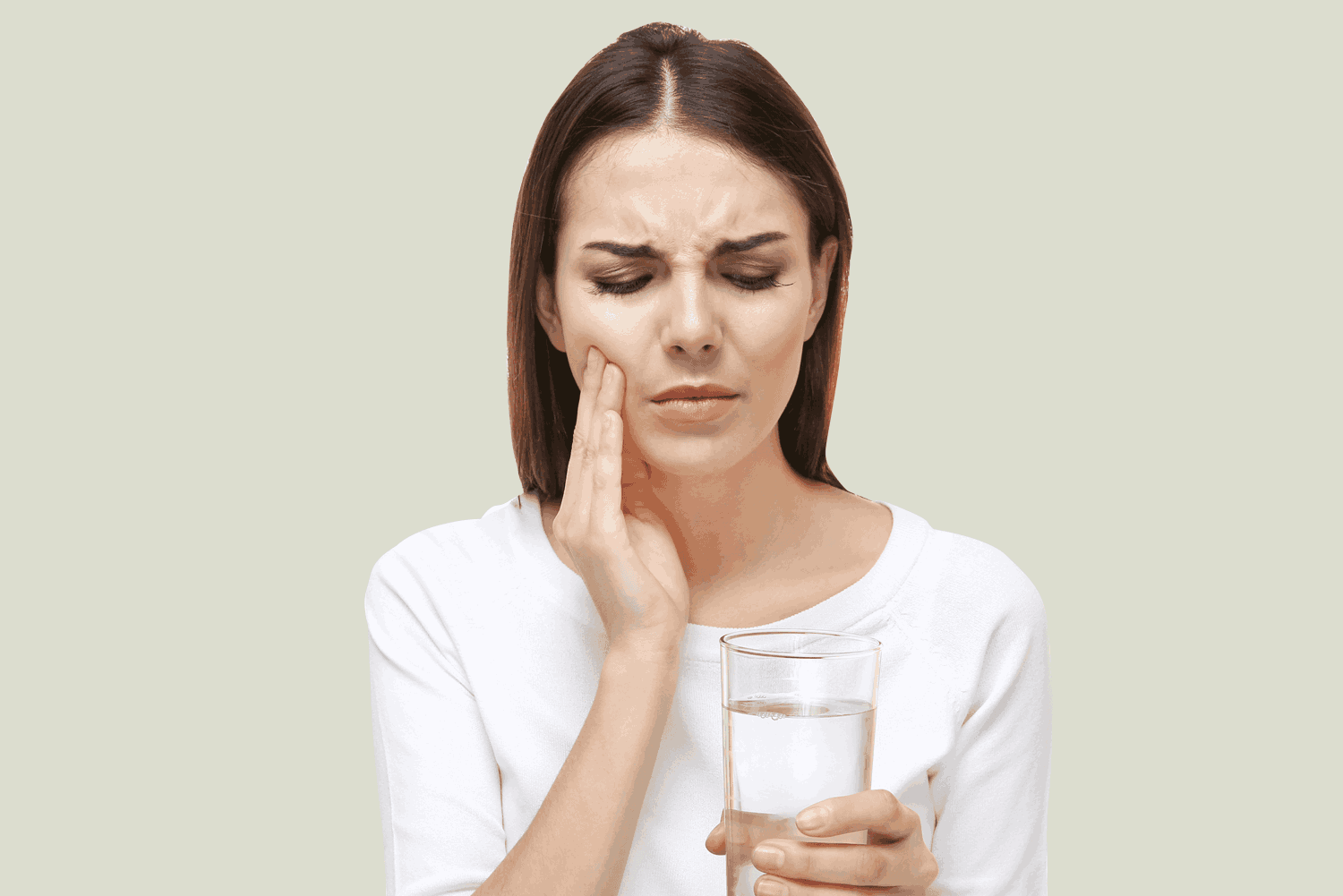Tooth sensitivity is a common yet often overlooked dental issue that affects millions of people worldwide. If you’ve ever winced while sipping a hot beverage or biting into an ice cream cone, you know firsthand the discomfort it can cause. But what exactly leads to this sharp, fleeting pain, and more importantly, how can you alleviate it? In this blog post, we will delve into the various causes of tooth sensitivity, from enamel erosion to gum recession, and explore effective solutions to help you manage and prevent this bothersome condition. Whether you’re currently dealing with sensitive teeth or simply looking to protect your smile, this comprehensive guide will provide you with the knowledge and tools to keep your teeth healthy and pain-free.
What is Tooth Sensitivity?
Tooth sensitivity, also known as dentin hypersensitivity, is a common dental condition characterized by a sharp, temporary pain in response to specific stimuli. These stimuli often include hot, cold, sweet, or acidic foods and beverages, as well as cold air or brushing and flossing. The pain can be sudden and intense, affecting one or more teeth, and typically subsides once the triggering factor is removed.
The Anatomy of Tooth Sensitivity
To understand tooth sensitivity, it’s important to know a bit about tooth anatomy. Each tooth is composed of several layers:
- Enamel: The hard, outermost layer that protects the tooth.
- Dentin: The layer beneath the enamel, which contains microscopic tubules or channels.
- Pulp: The innermost part of the tooth, containing nerves and blood vessels.

When the enamel is worn down or the gums recede, the underlying dentin becomes exposed. Unlike enamel, dentin is porous and contains tiny tubules that lead to the tooth’s nerve center. When stimuli such as heat, cold, or acidity reach these tubules, they stimulate the nerves inside the tooth, causing a sharp, painful sensation.
Symptoms of Tooth Sensitivity
The primary symptom of tooth sensitivity is a sudden, sharp pain in response to certain triggers. These triggers can vary but commonly include:
- Hot or Cold Foods and Drinks: Such as coffee, tea, ice cream, or cold water.
- Sweet or Acidic Foods and Drinks: Including candy, citrus fruits, and carbonated beverages.
- Cold Air: Breathing in cold air through the mouth can also trigger sensitivity.
- Brushing and Flossing: Some people experience pain while maintaining oral hygiene.
Tooth sensitivity can affect various parts of the mouth, but it is most commonly felt in the canines and premolars. The discomfort can range from mild to severe, and while it is usually temporary, it can significantly impact one’s quality of life and daily activities.
Common Causes of Tooth Sensitivity

Tooth sensitivity arises when the protective layers of your teeth, such as enamel or cementum, are compromised, exposing the underlying dentin. Here are some common causes:
1. Enamel Erosion
- Acidic Foods and Beverages: Consuming acidic foods and drinks like citrus fruits, soda, and wine can erode the enamel over time.
- Aggressive Brushing: Brushing too hard or using a hard-bristled toothbrush can wear down the enamel, exposing the dentin.
- Teeth Grinding (Bruxism): Grinding your teeth, especially at night, can wear down enamel, leading to sensitivity.
2. Gum Recession
- Periodontal Disease: Gum disease can cause gums to recede, exposing the roots of the teeth and leading to sensitivity.
- Aggressive Brushing: Brushing too hard can also contribute to gum recession, exposing sensitive areas of the teeth.
3. Tooth Decay
- Cavities: Untreated cavities can reach the dentin, causing sensitivity. Regular dental check-ups are essential to catch and treat cavities early.
4. Cracked or Chipped Teeth
- Physical Damage: Cracks or chips in teeth can expose the dentin, leading to sensitivity. This damage can result from trauma, biting on hard objects, or wear and tear.
5. Dental Procedures
- Teeth Whitening: Whitening treatments can cause temporary sensitivity due to the chemicals used in the process.
- Fillings and Cleanings: Dental work, including fillings and professional cleanings, can cause temporary sensitivity as the teeth adjust to the treatments.
6. Bruxism (Teeth Grinding)
- Habitual Grinding: Chronic grinding or clenching of teeth can wear down enamel and cause sensitivity. Stress and sleep disorders are common causes of bruxism.
7. Age-related Factors
- Natural Wear and Tear: As we age, our enamel naturally wears down, making teeth more susceptible to sensitivity.
- Gum Recession: Aging can also contribute to gum recession, exposing the dentin and increasing sensitivity.
Solutions and Treatments for Tooth Sensitivity
Once tooth sensitivity has been accurately diagnosed, various solutions and treatments can help alleviate the discomfort and address the underlying causes. Here are some effective approaches:
1. Desensitizing Toothpaste
- How It Works: Desensitizing toothpaste contains compounds such as potassium nitrate or stannous fluoride that help block the transmission of pain signals from the tooth surface to the nerve.
- Usage: Regular use, typically twice daily, can reduce sensitivity over time. Results may take a few weeks to become noticeable.
2. Fluoride Treatments
- Professional Fluoride Applications: Dentists can apply fluoride gel, foam, or varnish directly to the teeth to strengthen enamel and reduce sensitivity.
- At-Home Treatments: Prescription fluoride toothpaste or mouth rinses can provide additional protection and help remineralize the enamel.
3. Dental Bonding or Sealants
- Bonding Agents: Applying a tooth-colored resin to exposed root surfaces or areas of worn enamel can seal the dentin and reduce sensitivity.
- Sealants: Clear plastic coatings can be applied to teeth to protect exposed dentin and prevent further wear.
4. Gum Grafts
- Surgical Procedure: For severe gum recession, a gum graft involves taking tissue from another part of the mouth (often the palate) and grafting it onto the receded area.
- Benefits: This procedure covers exposed roots, reducing sensitivity and improving the overall health of the gums.
5. Root Canal Therapy
- When Necessary: If sensitivity is caused by severe decay or damage that has reached the tooth pulp, a root canal may be needed.
- Procedure: The dentist removes the damaged or infected pulp, cleans the interior of the tooth, and fills and seals it to prevent further infection.
6. Proper Oral Hygiene Practices
- Gentle Brushing: Use a soft-bristled toothbrush and gentle brushing techniques to avoid further enamel erosion and gum recession.
- Flossing: Daily flossing helps remove plaque and prevent gum disease, which can contribute to sensitivity.
- Avoiding Acidic Foods and Beverages: Reducing consumption of acidic items can prevent further enamel erosion and sensitivity.
7. Custom-fitted Mouthguards
- For Bruxism: If teeth grinding is contributing to enamel wear and sensitivity, a custom-fitted mouthguard can protect your teeth during sleep.
- Benefits: Mouthguards help prevent further damage and can alleviate associated jaw pain and headaches.
8. Dietary Adjustments
- Reducing Acidic Intake: Minimize consumption of acidic foods and beverages to protect enamel.
- Balanced Diet: Ensure a diet rich in calcium and vitamin D to support overall dental health and strengthen enamel.
9. Regular Dental Check-ups
- Preventive Care: Regular visits to the dentist allow for early detection and treatment of issues that can lead to sensitivity.
- Professional Cleanings: Professional cleanings remove plaque and tartar that regular brushing and flossing might miss.
Preventive Measures for Tooth Sensitivity
Preventing tooth sensitivity involves adopting habits and practices that protect your teeth and gums from the factors that cause sensitivity. Here are some effective preventive measures:
1. Proper Oral Hygiene
- Gentle Brushing: Use a soft-bristled toothbrush and gentle, circular motions to clean your teeth without causing enamel erosion or gum recession.
- Fluoride Toothpaste: Choose a toothpaste with fluoride to help strengthen enamel and prevent decay.
- Regular Flossing: Floss daily to remove plaque and food particles between teeth and along the gum line, reducing the risk of gum disease.
2. Balanced Diet
- Limit Acidic Foods and Drinks: Reduce consumption of acidic foods and beverages such as citrus fruits, sodas, and wine, which can erode enamel.
- Healthy Snacks: Choose snacks like cheese, yogurt, and vegetables that promote oral health and provide essential nutrients like calcium and vitamin D.
- Hydration: Drink plenty of water throughout the day to help wash away food particles and neutralize acids in the mouth.
3. Regular Dental Check-ups
- Biannual Visits: Schedule dental check-ups every six months to catch and address potential issues early.
- Professional Cleanings: Regular cleanings help remove plaque and tartar that can contribute to gum disease and sensitivity.
- Fluoride Treatments: Ask your dentist about professional fluoride treatments to strengthen enamel.
4. Protecting Enamel
- Use a Straw: When drinking acidic beverages, use a straw to minimize contact with teeth.
- Rinse with Water: After consuming acidic foods or drinks, rinse your mouth with water to help neutralize the acids.
- Wait to Brush: After eating or drinking acidic items, wait at least 30 minutes before brushing to avoid brushing softened enamel.
5. Avoiding Bruxism
- Mouthguards: If you grind your teeth at night, wear a custom-fitted mouthguard to protect your teeth from wear.
- Stress Management: Practice stress-reducing techniques such as meditation, exercise, or yoga to reduce teeth grinding.
6. Gum Health
- Avoid Aggressive Brushing: Brushing too hard can cause gum recession. Be gentle and use a soft-bristled toothbrush.
- Healthy Gums: Maintain healthy gums through proper oral hygiene and regular dental visits to prevent gum recession.
7. Choose the Right Dental Products
- Desensitizing Toothpaste: Use a toothpaste designed for sensitive teeth to help reduce discomfort.
- Soft-bristled Toothbrush: Opt for a toothbrush with soft bristles to protect enamel and gums.
8. Lifestyle Adjustments
- Quit Smoking: Smoking can contribute to gum disease and sensitivity. Quitting can improve overall oral health.
- Moderate Alcohol Consumption: Alcohol can be acidic and harmful to enamel. Drink in moderation and rinse with water afterwards.
Conclusion
Tooth sensitivity can be a bothersome and painful condition, but understanding its causes and solutions is the first step towards effective management. By recognizing the common triggers such as enamel erosion, gum recession, and tooth decay, you can take proactive measures to protect your teeth. Adopting proper oral hygiene practices, choosing the right dental products, and making dietary adjustments can significantly reduce sensitivity and improve your overall dental health.
Regular dental check-ups play a crucial role in preventing and treating tooth sensitivity, allowing for early detection and intervention. Whether it’s using desensitizing toothpaste, undergoing fluoride treatments, or considering advanced procedures like gum grafts or root canals, there are numerous options available to alleviate the discomfort. Remember, maintaining a healthy smile is a combination of preventive care and timely treatment. If you’re experiencing tooth sensitivity, don’t hesitate to consult with your dentist to determine the best course of action. With the right approach, you can enjoy your favorite foods and drinks without the sharp, fleeting pain of sensitive teeth.

